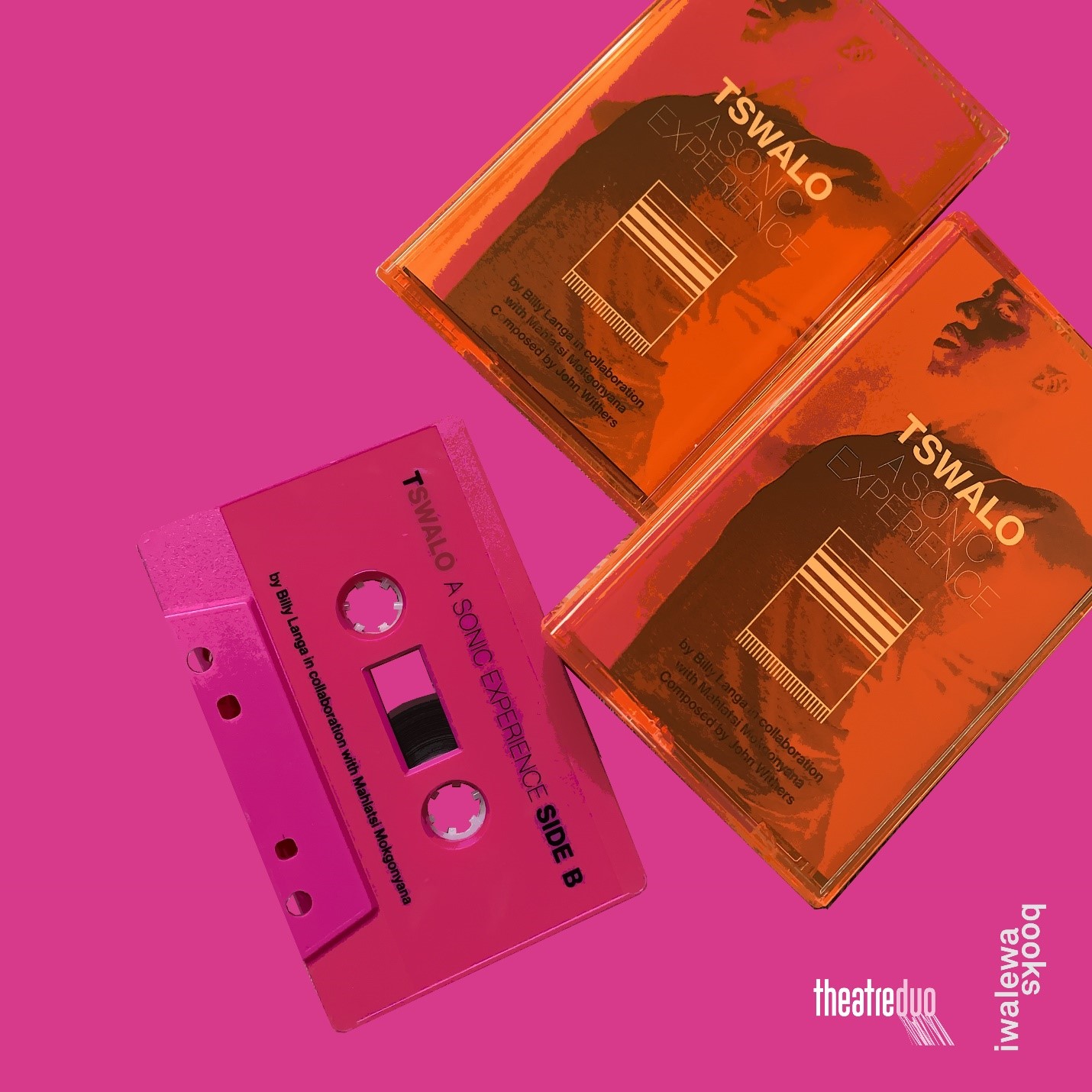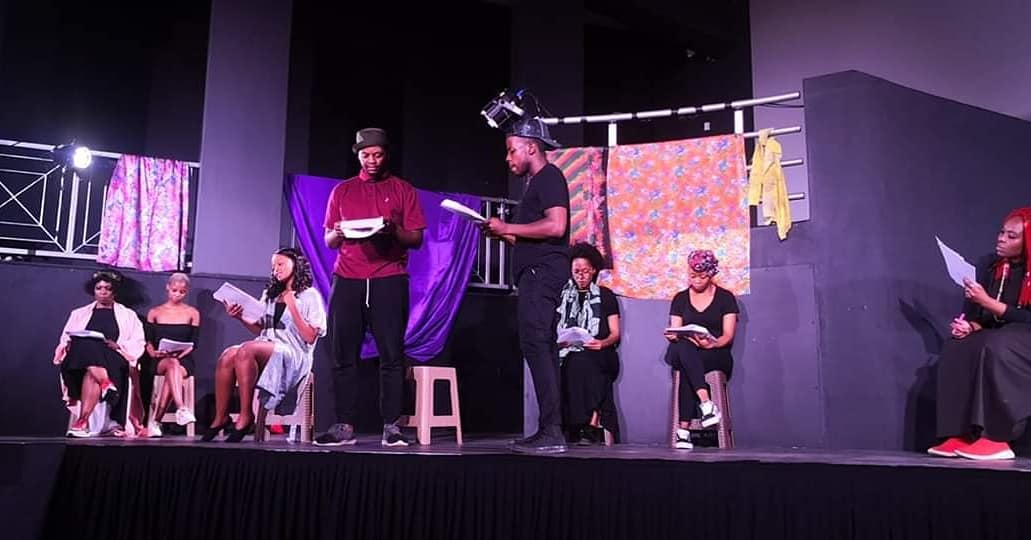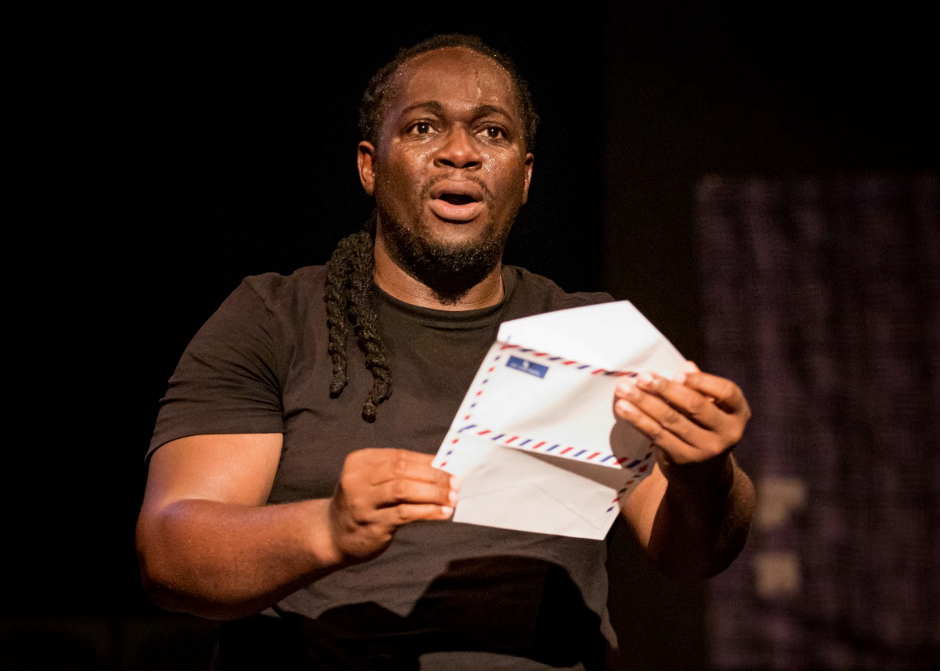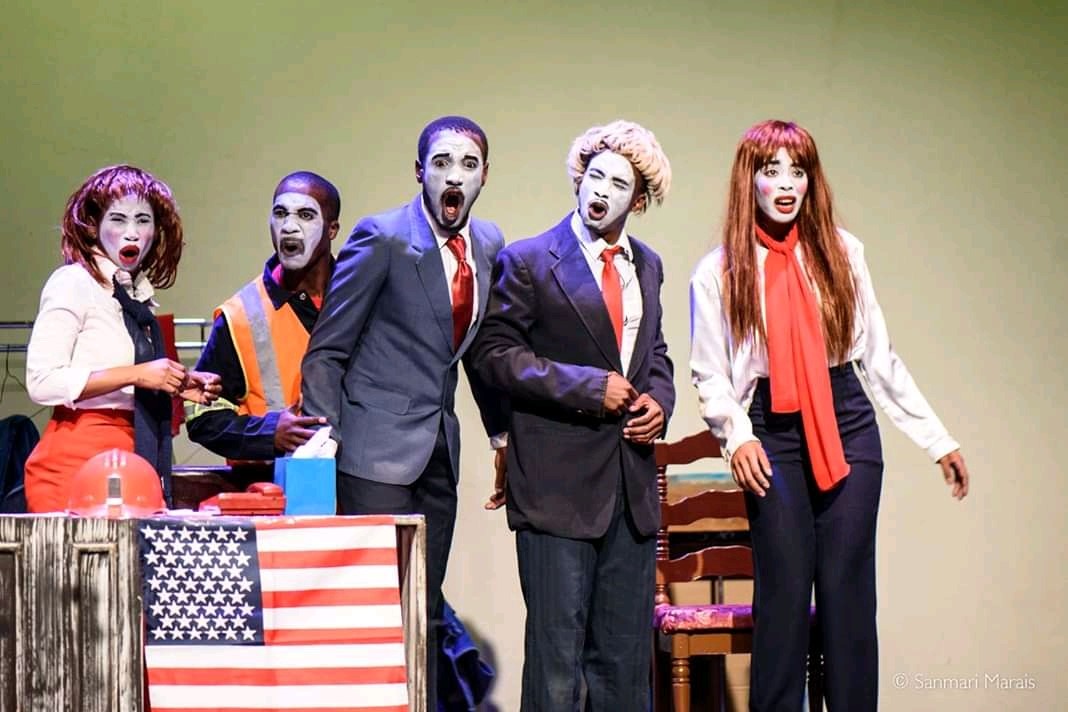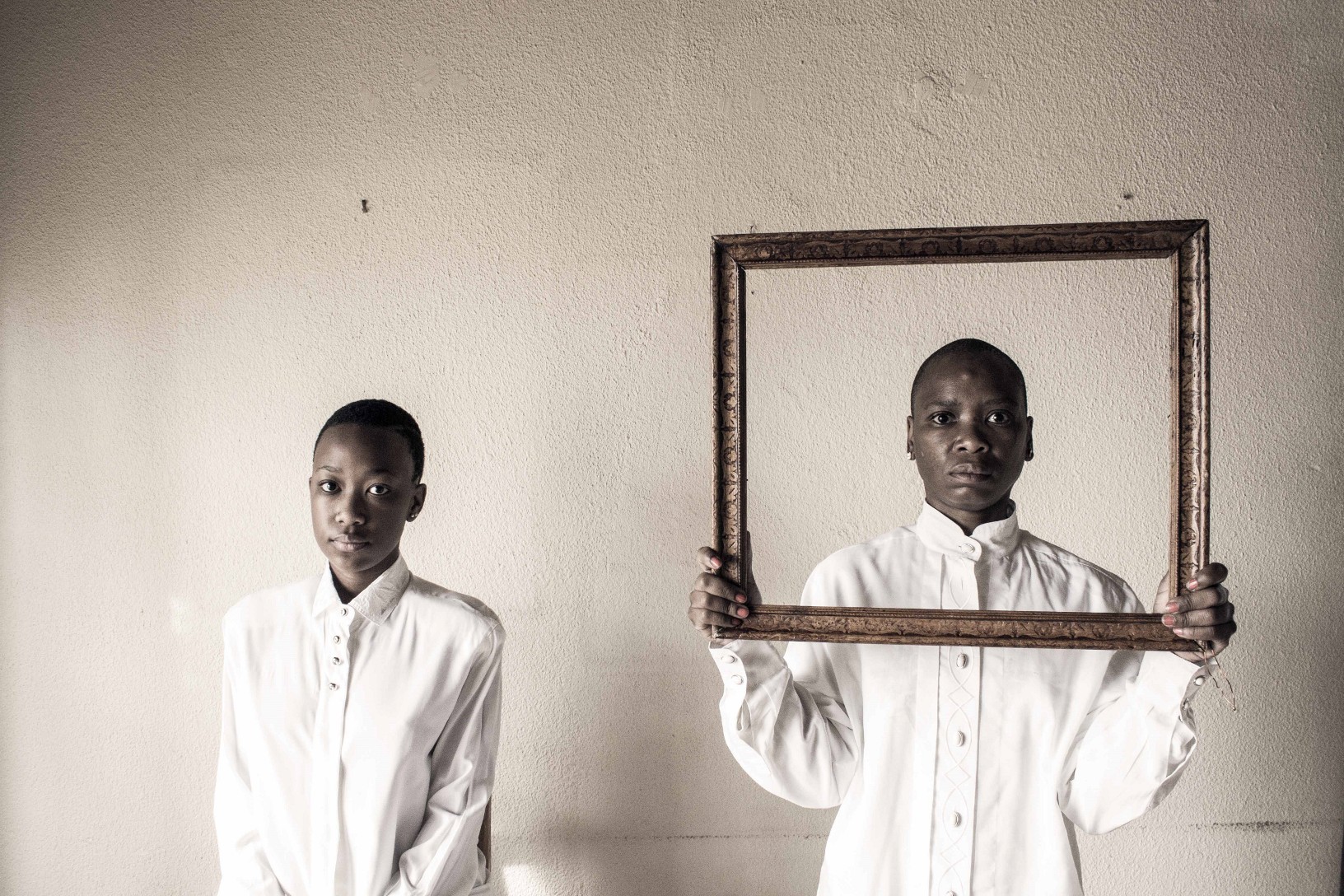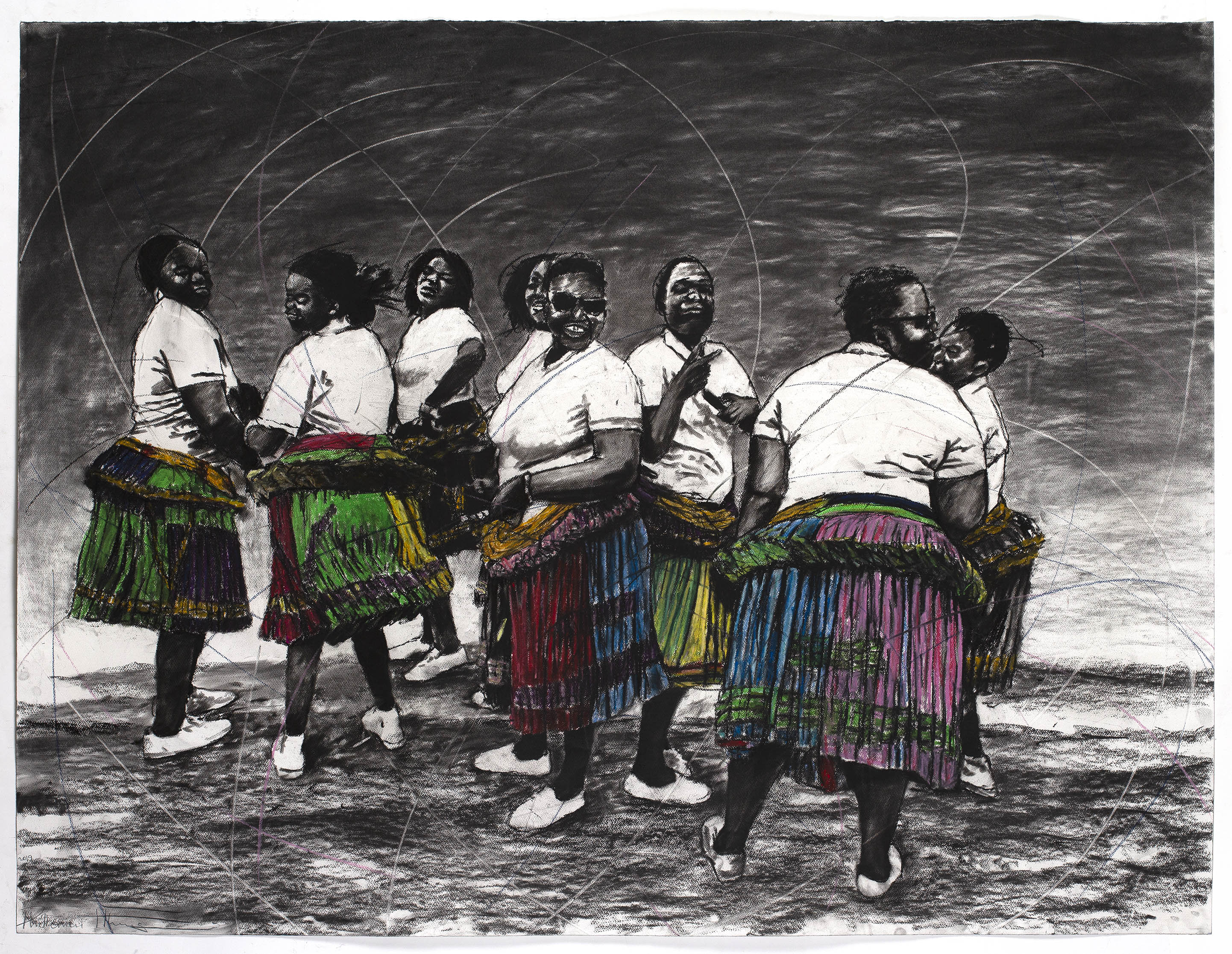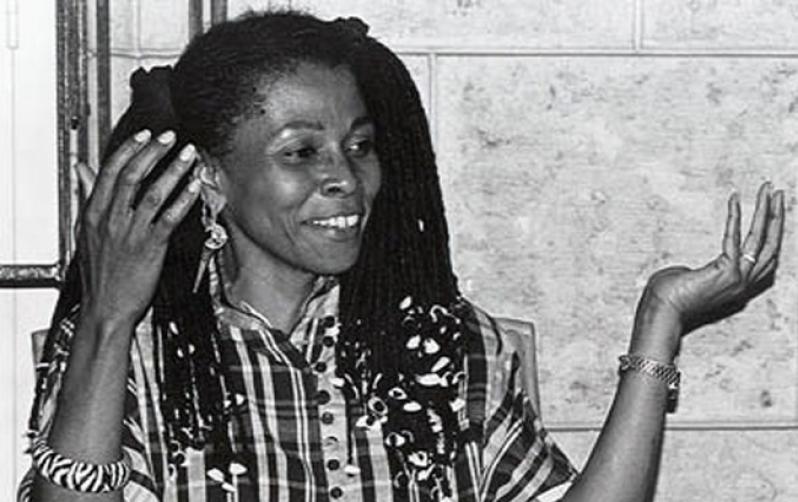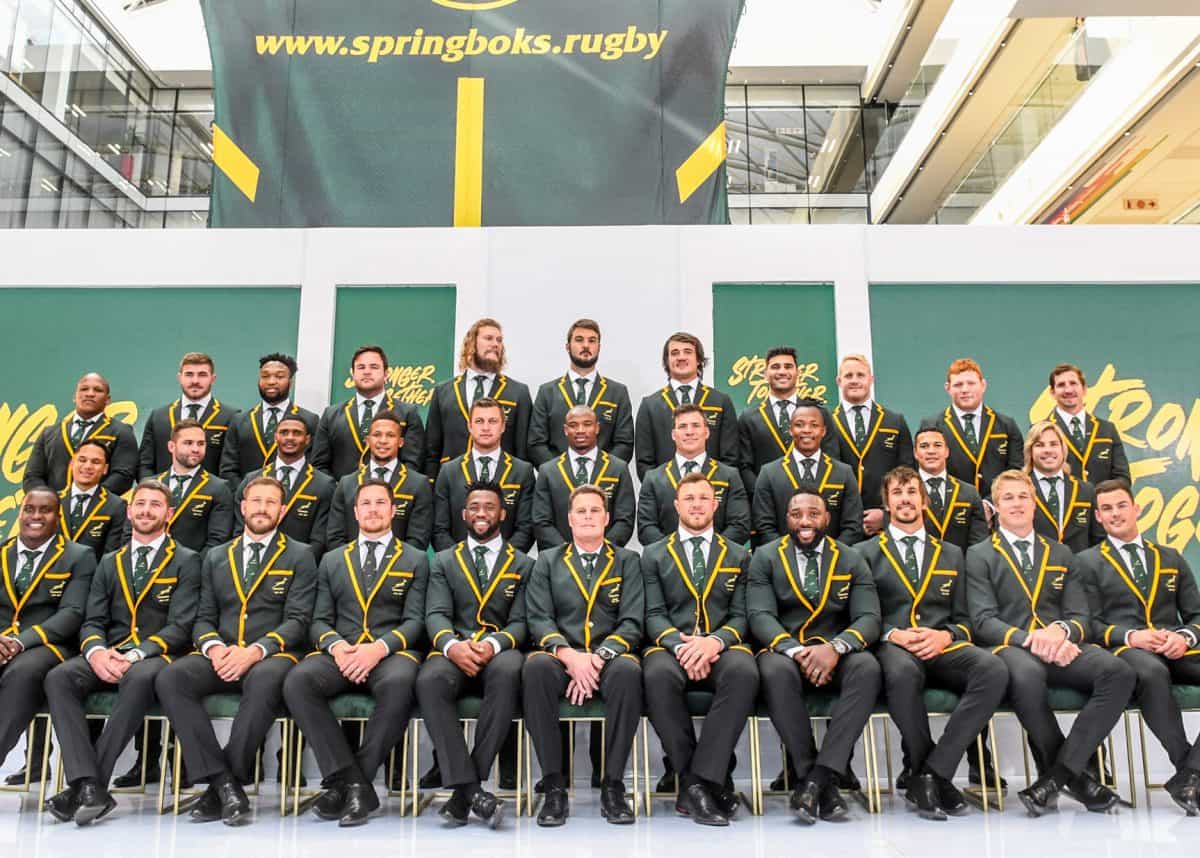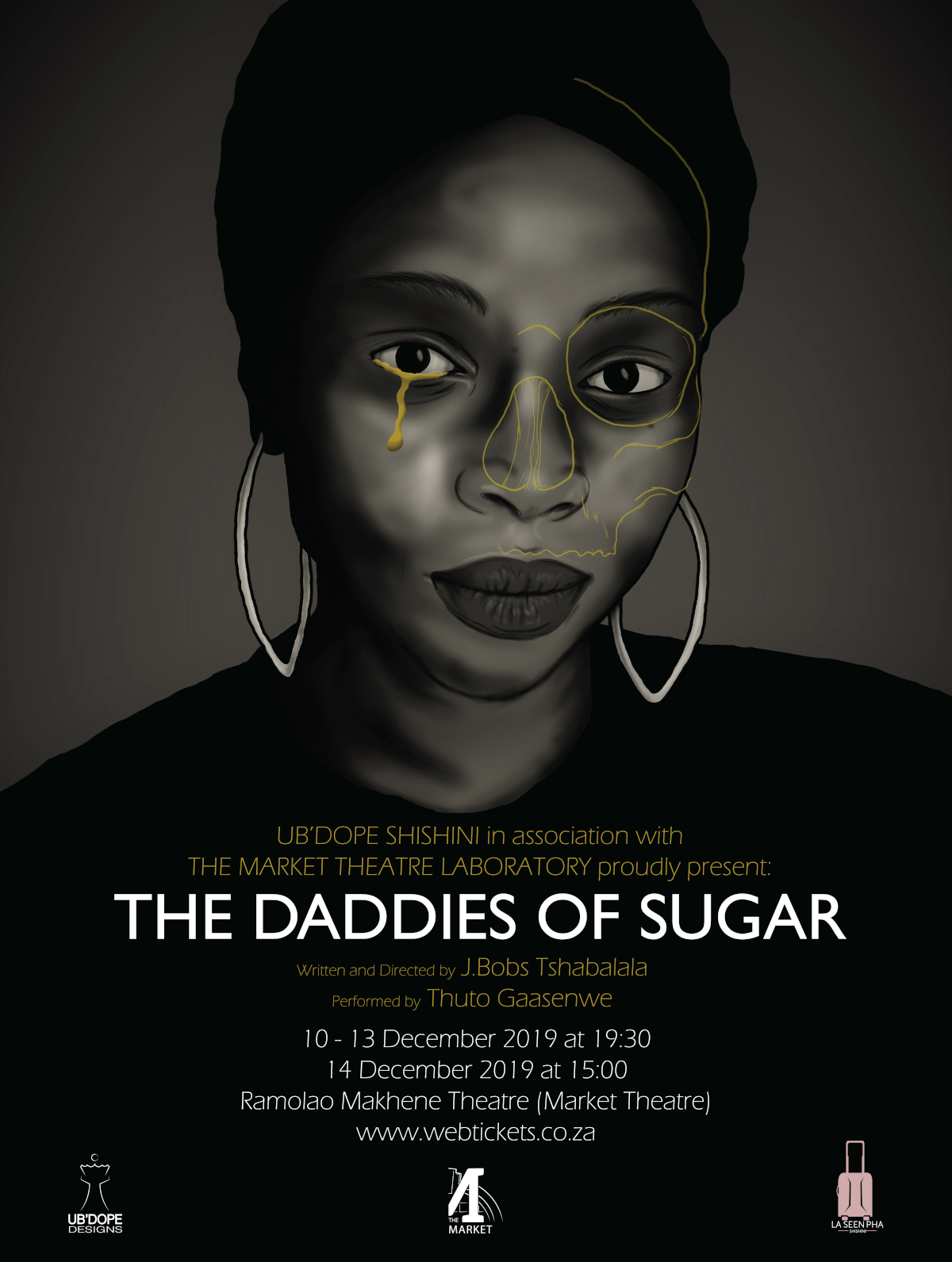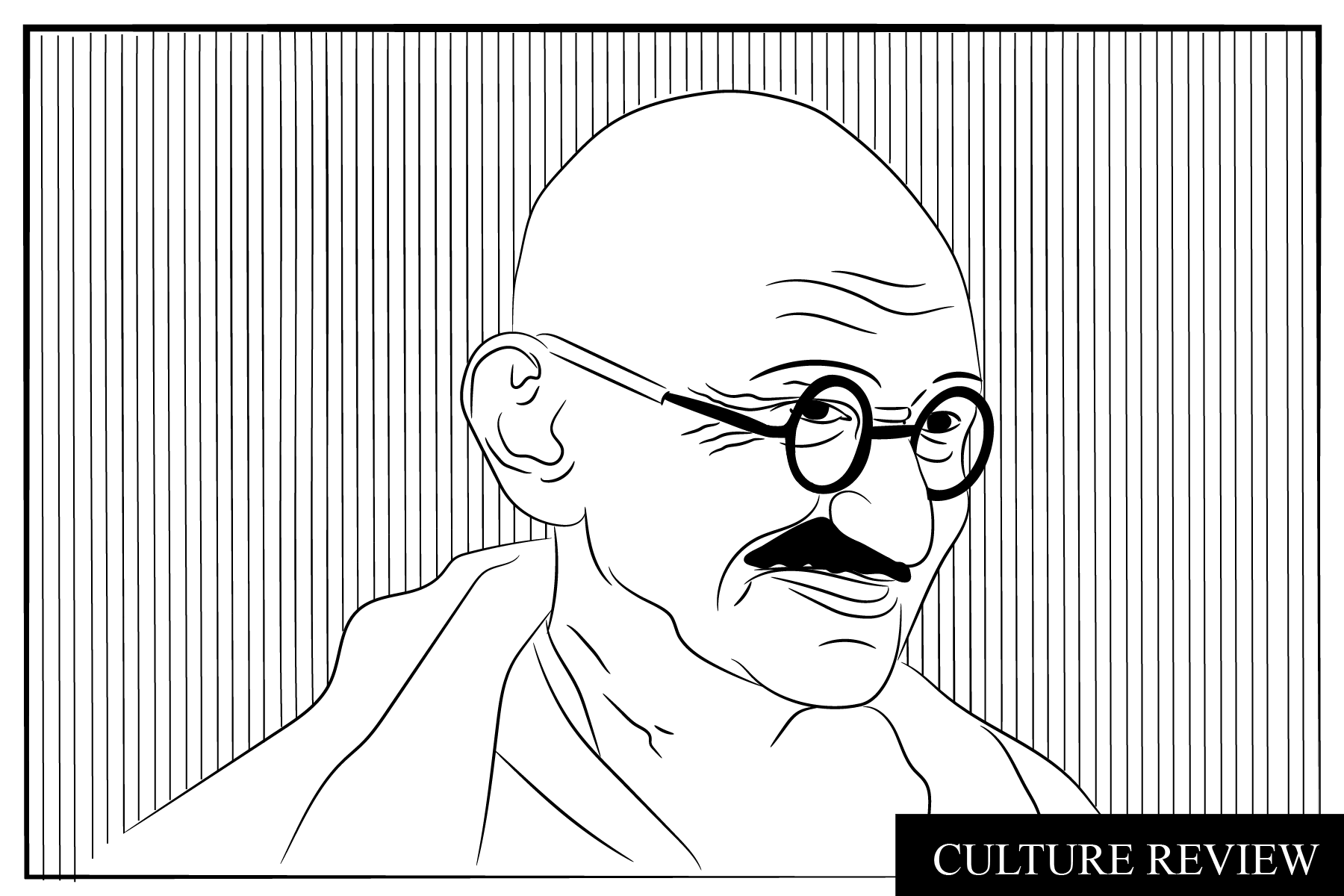Darkness engulfs a lone figure onstage. Light is earned as we come to realize – there is a figure forming before us – a narrator is being birthed. A blue fade illuminates the lone body dressed plainly in a vest and cargo pants. At his feet, the only property he will need to weave his alchemy: a blanket – tjale (the original form of the writer’s family name). As he manifests before us, so too does a barren land where dreams are not yet translated to words.
In this space, existence is nebulous; there is only isness. Breath is followed by gesture. Heaving, the narrator-performer swoops us up off the ground into the floating, infinite space that is the backdrop of his genesis. He asks us, without words, to journey with him through the memory, and prophecy of a birth. Whose birth? His own. Few storytellers go this far forward and back to piece together the narrative that would see the emergence of the story they are about to tell. This undertaking is worth mention as it is a quality retained in this new iteration of the work. The equivalent of the notion of setting the stage in the live version of the play is mirrored by a long musical intro that sets the stage in a different way and reminds you that you are not experiencing something you know. This setting of the stage – this (non)exposition tames the space and prepares the audience for the communion about to occur. You are being birthed. Together with the narrator/reader, and the narrative/record – le a tswalwa.
Tswalo, conceived and birthed by the Theatre Duo (Mahlatsi Mokgonyana and Billy Langa), is in its fifth year of life – a feat seldom achieved by contemporary South African plays. Plays usually do not last longer than their initial runs due to funding, resources, motivation and variety of other reasons. Many South African plays have been trapped in the archive, to the point that people know of their existence, but the unpublished play texts remain largely inaccessible. Most of the plays that make it to festivals hardly ever get published professionally, thus limiting the possibility of future theatre makers, learners, artists and other interested individuals gaining access to and extending the life of said material. It is almost as if each play is a baby doomed to die in its infancy. Not so with Tswalo.
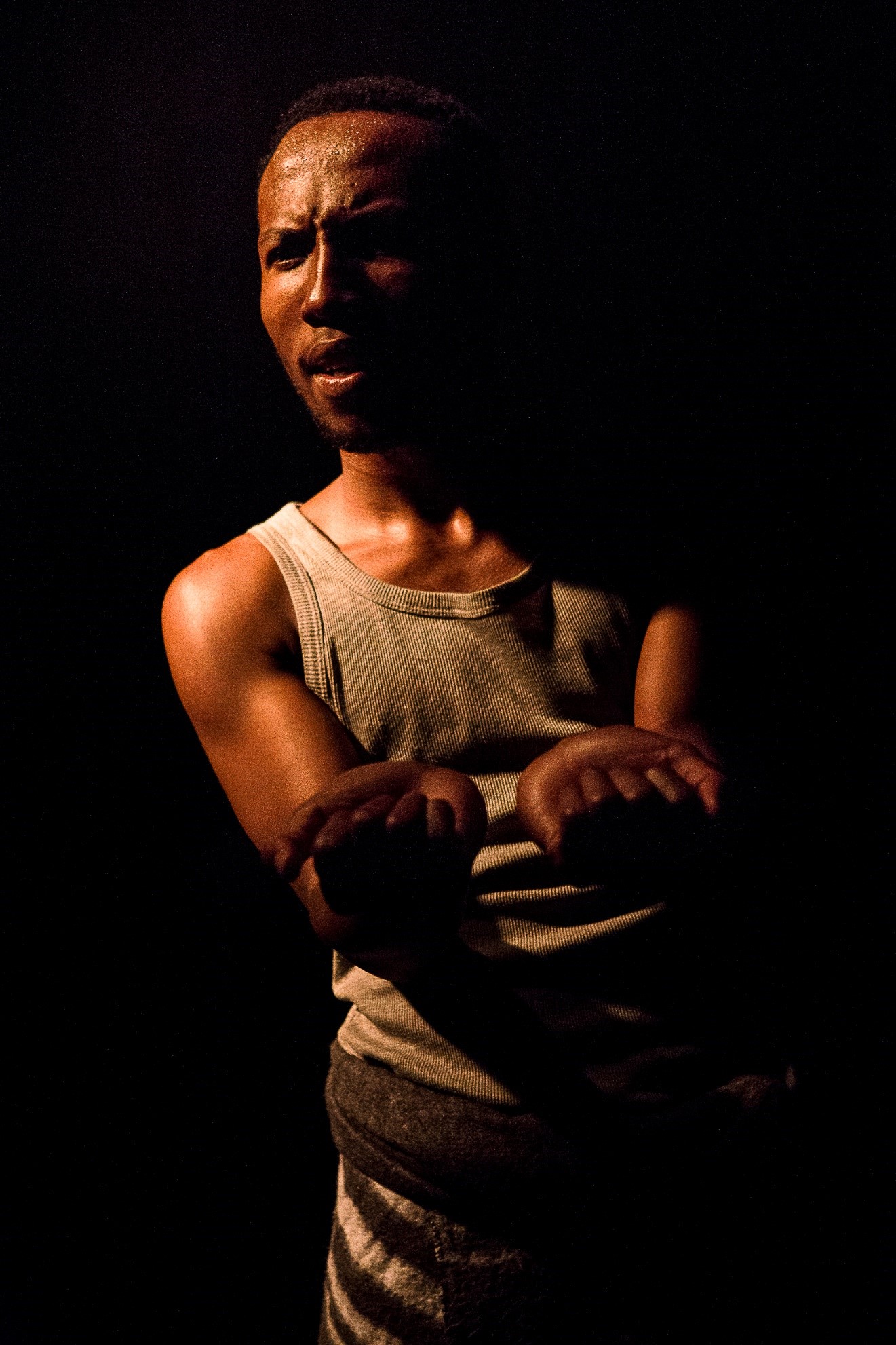
A project that started as an assignment, rather exploration of the concepts birth, life and death by Langa while training at the Market Theatre Laboratory, has come full circle several times. The most recent rotation takes us back to snot nosed memories of pens and pencils used to claw back at moments passed. What happens when a play, meant to be performed in front of a live audience is laced down to be experienced sonically on a cassette tape? Do the memories of the body linger in the voice and film, and how does the performer take all that was seen and make it heard? What becomes the source of the instinct that once called forth gesticulation, but now translates itself audibly? How, for instance, does Langa use the voice to reimagine moments in the play that were accentuated by movement, for example the evolutionary process from primate to homo sapiens? These and other questions swirled through my mind as we listened to Tswalo: A Sonic Experience.
Recorded in 2019, a year before the war in the belly of the heavens descended in the form of a pandemic, this new version of the play is interesting for a number of reasons. One of which is the fact that 2020 in all its splendour presented a question to the world at large, and more specifically to the live arts. How do you survive when your audience cannot come to see the work? To this day, we are still grappling with the translation of live performance through recorded media such as VOD and streaming services. While these have had varying degrees of success, it quickly became clear to practitioners of the live arts that one of the surest ways to stay afloat, was to become adaptable and collaborate. Rigidity in a moment of global-scale shifts could prove detrimental – as was seen in the existential crisis facing the theatre. Rather than be locked down in craft, the Theatre Duo had already been working on ways to become more accessible to their audiences. The nature of the guiding ethos of the company ensured that when the pandemic hit, unlike the rest of us, they didn’t have to dream up new ways of being in the world as artists. Instead of being consumed by the pressure of creating a new identity amidst a pandemic, the Theatre Duo were well placed to refine a work already in progress.
Langa is easy to listen to, and easier to watch. The challenge to him and Mokgonyana was in (re)locating the performance outside of the visual, and within the sonic. “Go back to the source” – it is almost like this is what the team collaborating had to say to themselves – “go back to the source”. Now, it would be impossible to curate the same experience, and yet there was something quintessentially unchangeable about this far-reaching tale. The core story remained unchanged even as large chunks of the text were truncated for the auditory experience. Langa had to redream his approach to words written over five years ago. Having performed the play solo for so long meant that he could easily breathe the poems in his sleep, but being in the booth placed a new set of challenges before him. The play now had to be read, instead of recited through theatrical endeavour. Text took on greater primacy as the body was removed from our view, only to be felt as Langa danced with the microphone. New characterizations were explored against the backdrop of a score that sketched the scenery and atmosphere of the unfolding world. Watching the play almost caused the text to fall behind the performance, giving primacy to voice and body, but now that your eyes had to close to allow you to sink into this universe of sound, you began to hear and appreciate the play anew. You were being birthed again. O be o tswalwa gape.

How perfect it is then, that the medium chosen for this “new” edition of Tswalo is one so nostalgic that it curates a conversation about how we have encountered sound through the years, and the evolution of sonic technologies. Reflections on the transition from the tape recorder to the Walkman to mp3 players to the iPod shuffle are sure to ensue after experiencing this rendering of a much-loved production.
This version of the play is an extension of the philosophy championed by the publishing company behind Tswalo’s recent re-publication of the book, and now the tape – iwalewabooks. This philosophy, inclusive aesthetics, calls for normalizing the inclusion of marginalized observers and participants by creatively reimagining new forms of existing work. Tswalo can now be experienced – without obfuscation – by members of the blind community in addition to audiences lacking a penchant for theatrical work, but with an affinity for auditory experiences. Covid-19 has ensured that the theatre as we know it has come to a halt, it is refreshing to see that the likes of the Theatre Duo and iwalewabooks have embraced adaptation, managing to grow against seemingly insurmountable odds.
Once an infant, this production now has growing legs. Tswalo is setting up for a marathon across the world. Few have made it to this starting line. As we witness the rebirth of what is surely becoming a South African classic, let us take a moment to reintroduce ourselves to the ideas that pulled us into this microcosm of wonder, wandering and delight. The sonic experience is one not to be missed, and if you don’t have your grandfather’s cassette player nearby, worry not, for a digital version accompanies the pink tape that reminds us of Saturday mornings spent on knees, while working Cobra into a redding stoep!
Credits: Billy Langa, Mahlatsi Mokgonyana, John Withers, Lena Mannhardt & Bastian Beekes
Mastering: Superphad
Special thanks to: Eugene Shatalov / Silhouette Tapes, Musik-Archiv iwalewahaus (Alexandra Kuhnke, Lena Naumann) & Black Ark (Koketso Potsane)

